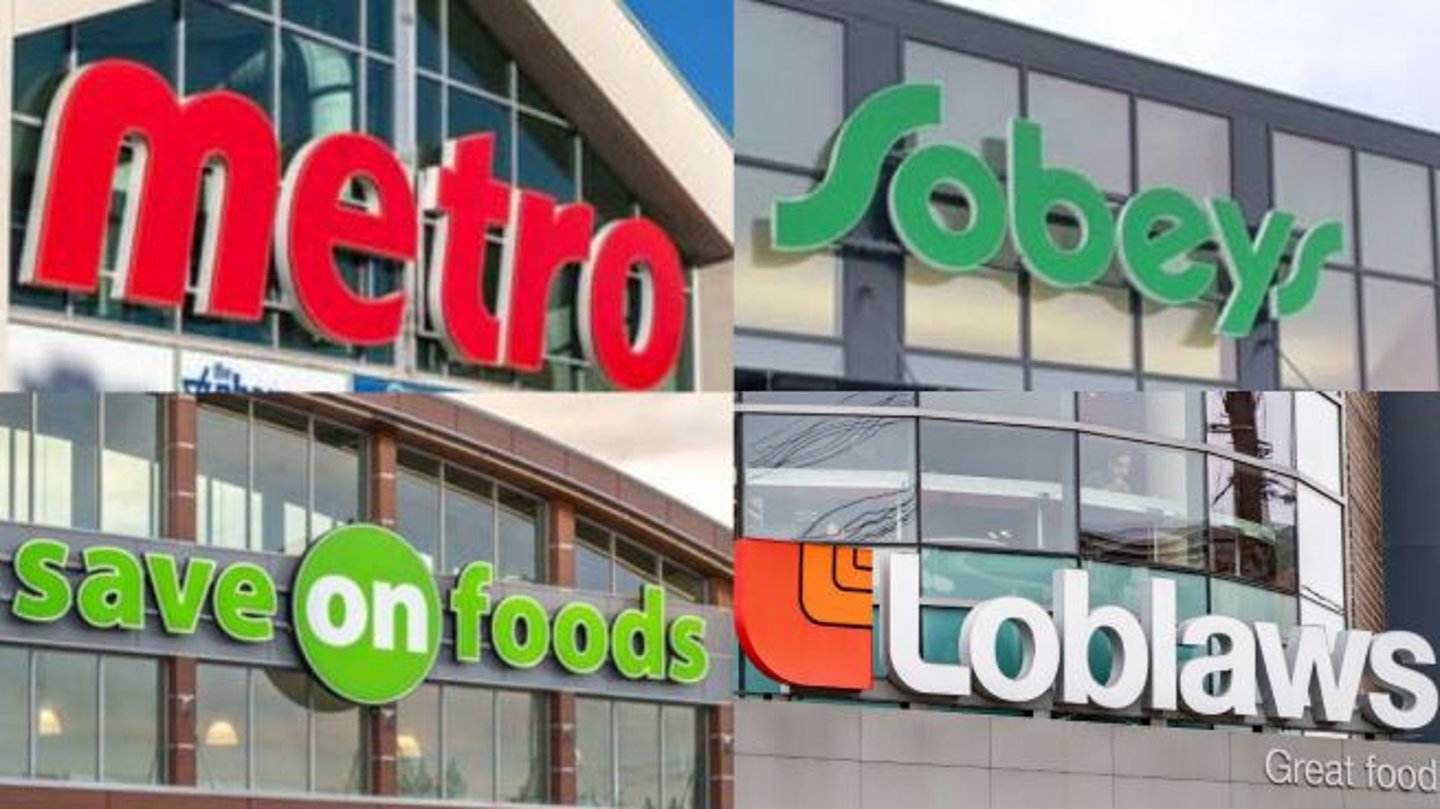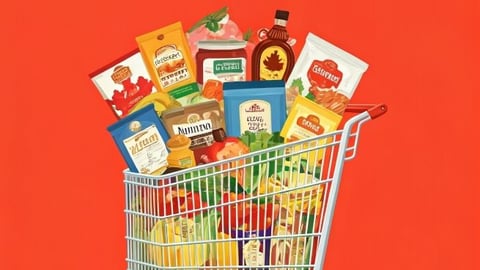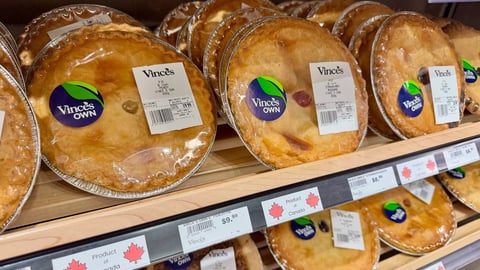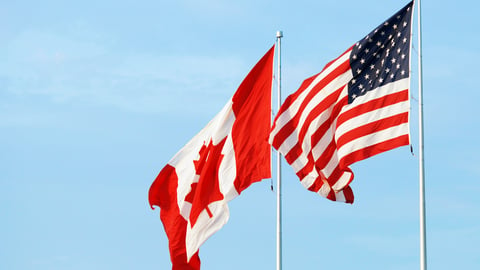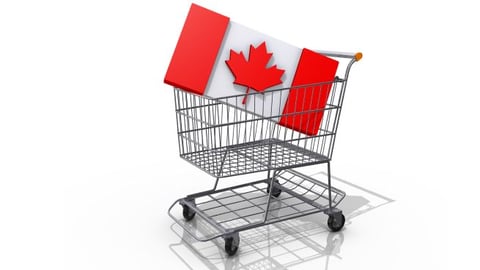Here's what Canada's grocery leaders have said about the U.S. tariff threat
A looming trade war between the U.S. and Canada is creating much anxiety for the country's grocery industry. But retail leaders remain optimistic, promising to continue to deliver value to consumers in the face of political turmoil.
Read on to learn more about how Canada's food retail leaders are responding to the situation.
Michael Medline, president and CEO, Empire Co. Ltd. and Sobeys Inc.
“As difficult as it has been for our country dealing with the tariff threat hanging over our heads, it has also been so incredibly heartening to see us coming together as a country. This unfortunate situation has sparked a passion in Canadians from coast to coast.
“As a proud Canadian-owned and operated company for 118 years, we’re going to show up in every one of our stores across the country, giving customers exactly what they are telling us they are looking for: a way to support their local producers and their country.
“Customers won’t have to compromise in our stores.
“Our merchandising and sourcing teams have stepped up efforts on Canadian-grown and produced products, building on our strong local sourcing programs and commitment to local producers that has been a cornerstone of our business for years.
“Through every communication channel we have at our disposal, Canadian products will have even greater prominence on our shelves, in flyers, in online communications, and through our advertising. And when customers step into one of our stores—from Sobeys to IGA, Safeway to Thrifty Foods, Farm Boy to Longo’s, Foodland and FreshCo—they’ll be able to find a local or Canadian option for just about everything on their list.”
READ: These Canadian retailers and brands are tapping into the ‘Buy Canadian’ trend
Darrell Jones, president, Pattison Food Group
“We take great pride in being a locally owned and operated Western Canadian company, and providing our customers with made in Canada products has always been a strength and a priority for us. We seek ways to support local suppliers first whenever and wherever we can, including carrying more than 2,500 locally made products from more than 2,000 local growers and producers.
“Over 110 years in business, we have developed strong, longstanding partnerships with growers, producers and suppliers across Canada, and these relationships will play a critical role in overcoming the challenges facing our great country. We must work together to grow and prosper as individuals, companies, and as a country.
“Over the last few years, our customers have been more interested than ever in buying locally grown and produced items. We are very fortunate that Canadian companies have been incredibly innovative in making more products available for customers and we work to prioritize local products for mass distribution whenever it makes sense.
“For more than 50 years, Western Family has been our private label brand and it plays a critical role in growing our selection of locally made products.
“As we make our way through the challenges facing our country, we remain committed to our customers, to Canadians, and to buying local first from the suppliers, growers and producers whose entrepreneurial spirit helped build this great nation.”
Metro Inc.
In a statement shared with Canadian Grocer, Metro Inc. said:
“For many years, we have been identifying and promoting Ontario products in our stores, notably through Metro’s Locally Sourced program and Food Basics’ We Love Local program.
“In our Quebec stores, we make a point of identifying and promoting Québec products, notably through the Aliments du Québec certification program, and more recently through Les Produits du Québec, which certifies non-food products. We promote these certifications in our Quebec grocery stores and pharmacy networks to make it easier for customers to find local products.
“When it comes to procurement, we already give priority to local Canadian products whenever possible.
“It's all part of Metro’s commitment to supporting local producers and facilitating access to their products, while offering our customers the quality products they're looking for according to their values, budget and preferences. In the current context, we'll be putting more emphasis on these products.
“Finally, in the coming weeks and given the circumstances, we'll be working to optimize the visibility of local products—in-store, online and on our various promotional tools like the weekly flyer—to make them easier to find for customers who want to prioritize them.”
Late last month, Metro president and CEO Eric La Flèche sat down with reporters following the company’s annual general meeting. On the topic of tariffs, the chief executive said:
“My biggest concern is the Canadian dollar… There's a consequence on our costs if the Canadian dollar weakens or is weaker. It is weaker today than it was a few months ago. So we're feeling that pressure. How do we prepare? We prepare by getting the best sources of supply that we can. We prepare by buying Canadian and local as much as we can. But there are certain products, especially at this time of year, that we don't produce in Canada and we don't sell in Canada.
“I hope this trade war will not concern food and food prices for everybody, for Canadian citizens, for Quebecers. Nobody would like to see tariffs on imported food, but we'll let the government do their job and defend Canadian interests as best they can. It's a very volatile situation, and we will just have to wait and see.”
Per Bank, president and CEO, Loblaw Cos. Ltd.
The chief executive of Canada’s largest grocery retailer shared to LinkedIn on on Feb. 3:
“We know many Canadians are anxious and uncertain about the recently announced and entirely wrong-headed tariffs announced by the U.S. government. Canada has announced retaliatory measures, as it must. Canada must fight hard to protect the interests of all Canadians who have suffered though enough in recent times.
“The cost of living, including the price of food, has been challenging. A trade war would do nothing to make that reality any better on both sides of the border, especially for customers. That’s our primary concern.
“We are taking action to minimize the impacts as much as we can. As Canada's largest domestic food purchaser by a large measure, we are doubling down on securing food grown and made in Canada. Where we have had to purchase products made in the U.S., we will look for alternatives including products from Mexico which has also been subjected to these unnecessary tariffs. We are actively advocating for consumers with government and industry to ensure the consequences of this situation on Canadian consumers are well understood.
“Economically, we know that tariffs by their very nature are inflationary. Add in the state of the Canadian dollar at the moment, and new tariffs have the potential to put significant pressure on costs, which will ultimately impact consumers directly.
“We hope that government leaders move quickly to solve this issue and remove barriers to trade for two countries that have enjoyed decades of friendship and partnership. Until then, you have my commitment, to advocate on behalf of Canadians as we navigate this issue.”
Dollarama Inc.
In a statement to Canadian Grocer, the discount retailer said:
“Some of the goods we source from the U.S. will be impacted by Canada’s counter-tariffs. For those products, we may seek alternate sources of supply, as required, leveraging our robust and flexible sourcing platform. Our priority, as always, would be to continue offering our customers the best relative value on the market across our broad selection of everyday and seasonal goods and within our low, fixed price points.”


